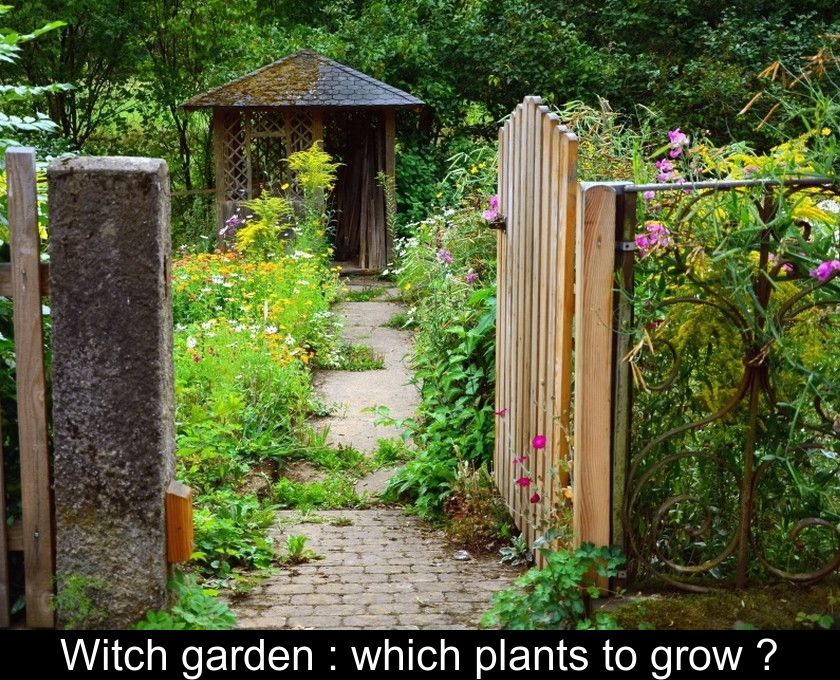Witch Garden : Which Plants To Grow ?
If you are used to using plants in your cooking or medicinal preparations, you know that it is preferable to use plants that you have grown and/or picked yourself rather than buying them in the shops. Here is a practical guide to plants to grow in a witch garden.
A beneficial garden
When we talk about witch garden, we sometimes imagine that it will host plants associated with black magic such as datura, castor oil, belladonna or monkshood.
But today's witches are women who are well aware of the properties of plants and use them mainly for benevolent purposes, to cure small everyday ailments or treat the taste buds.
Except for clearly marked exceptions, the varieties we present in this article are safe. On the contrary, you can incorporate them in culinary preparations, beauty products or natural remedies to take advantage of their virtues.
Aromatic plants
The first category of plants that are a must in a witch's garden are aromatic plants.
Very rich in essential oils, these plants are appreciated for flavoring broths and sauces, for example in the form of a bouquet garni.
But they also have many medicinal properties:
- rosemary has depurative virtues for the liver. It has diuretic and anti-fatigue virtues
- Thyme is known to treat winter viruses such as colds and to relieve respiratory symptoms
- Mint facilitates digestion, soothes coughs, relieves insect bites, skin itching and mouth infections
- basil is beneficial in more than one way: it acts against nausea, digestive spasms, painful menstruation but also against cramps and muscle pain.
Of course, the list of aromatic plants given above is not exhaustive! You can also add to your herb patch bay, marjoram, sage or wild thyme for example.
Well-known medicinal plants
If you want to grow your own witch garden to heal yourself and your loved ones, here are some of the most well-known and useful medicinal plants to grow in our latitudes:
- Roman chamomile has antispasmodic properties. It is effective against stomach aches, liver crisis but also fever.
- Elderberry is traditionally used to make cough syrup.
- Lemon balm acts against all symptoms of nervous origin, whether digestive disorders or sleep disorders. It improves blood circulation and fights against viral infections.
- the stinging nettle is a stinging plant which grows spontaneously in gardens. It has always been used in white magic for its protective effects. It can be consumed in the form of soup but also of herbal tea. It is said to have remineralizing virtues for the body and the ability to slow down seasonal hair loss, to relieve joint pain and iron deficiencies.
Flowers as beautiful as they are useful
Edible and non-edible flowers also have their place in a witch garden. Among the edible flowers we can think of borage, for example. These pretty blue flowers have an oyster flavor and bring a touch of magic to a simple steamed fish...
- Lavender, known for its relaxing virtues, treats sleep disorders and can be used to flavour certain desserts. It also has virtues for the skin to promote healing and soothe itching. In magic, it is used to attract love.
- The rose has always been used in love potions and can also be added to tea and herbal teas in the form of dried rosebuds.
- Hawthorn is the ideal flowering shrub to create a hedge in a magical garden. Not only is it a beautiful flowering plant, but its flowers, fresh or dried, can be used to make soothing herbal teas.
To note: if you don't have pets or small children, you can also grow in your witch garden witch's periwinkle or violet.
This shade-loving flower is hardy and will spread quickly as a ground cover (it can even become invasive). But beware: all parts of the plant are poisonous if ingested!








